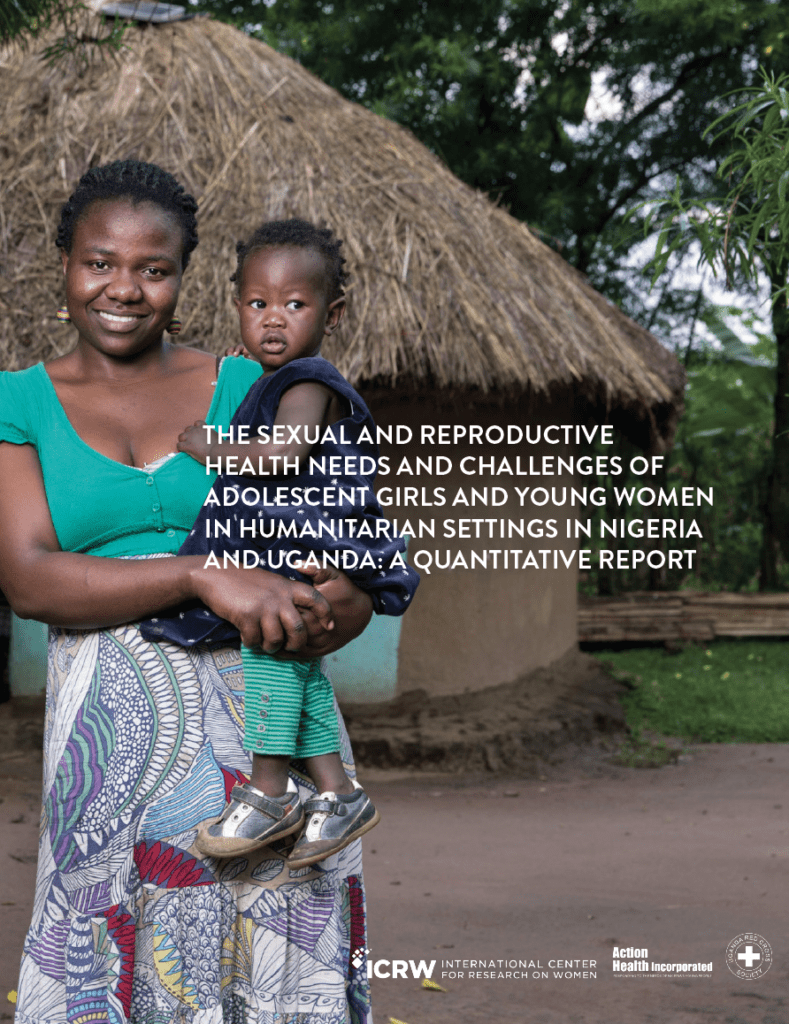
Improving SRHR Outcomes Among Young Refugee Women and Girls in Nigeria and Uganda
2019 - 2023
International Development Research Center (IDRC)
Nigeria ,Uganda
Chimaraoke Izugbara
 More people than ever are affected by emergencies due to conflicts and natural disasters. Young women and girls in humanitarian contexts are particularly at risk for sexual and reproductive health and rights (SRHR) vulnerabilities, including sexual violence and unsafe abortion, early and forced marriage, early and unintended childbearing, trafficking, and sexual exploitation, among other negative outcomes. Building the health resilience of communities in refugee contexts requires carefully designed and evidence-grounded interventions; however, systematically generated evidence that can guide such efforts is often not available.
More people than ever are affected by emergencies due to conflicts and natural disasters. Young women and girls in humanitarian contexts are particularly at risk for sexual and reproductive health and rights (SRHR) vulnerabilities, including sexual violence and unsafe abortion, early and forced marriage, early and unintended childbearing, trafficking, and sexual exploitation, among other negative outcomes. Building the health resilience of communities in refugee contexts requires carefully designed and evidence-grounded interventions; however, systematically generated evidence that can guide such efforts is often not available.
In coordination with the Uganda Red Cross Society and Action Health Incorporated, Nigeria, ICRW is implementing a project to generate and use evidence to improve the design and delivery of SRHR services among young girls in selected refugee camps in Uganda and Nigeria. The project builds on the ecological model for health promotion—which prioritizes the interpersonal, organizational, community, and public policy factors that sustain unhealthy SRH behaviors—and focuses specifically on the first three tiers of influence on adolescent SRH behaviors and practices in refugee camps.
Download the report here.
What did we set out to do?
ICRW’s role:
- Synthesize existing literature on the SRHR challenges of young refugee women and girls, highlighting promising solutions and best practice service delivery models
- Conduct participatory, mixed methods formative research to generate evidence on the SRHR knowledge and challenges of young women and girls in the target refugee settings.
- Assess existing service provision models against global standards and best practice guidelines for adolescent/youth friendly SRHR services in humanitarian settings.
- Support existing SRHR initiatives in refugee camps in the target countries to use emerging evidence to improve SHRH services for adolescent girls
What methods are we using?
The project approach involves the synthesis of existing literature on the SRHR challenges of young refugee women and girls, which includes a desk review and scoping study. Through mixed-methods formative research and service assessment, including data collection and analysis, findings will be applied to improve ASRH services in the the selected study sites (the Muna Garage El Badawe Refugee Camp in Borno State, Nigeria and the Nakivile camp located in South West Uganda). An iterative learning and continuous adjustment and adaptation process allows evidence from one stage of the research to inform the next stage, while the design and delivery of service and interventions are developed and fine-tuned based on emerging evidence and lessons. ICRW will translate findings into actionable recommendations in each country.
